Sri Lanka’s cancer patients struggle amid economic chaos
Hospitals across the country have experienced severe drug shortages
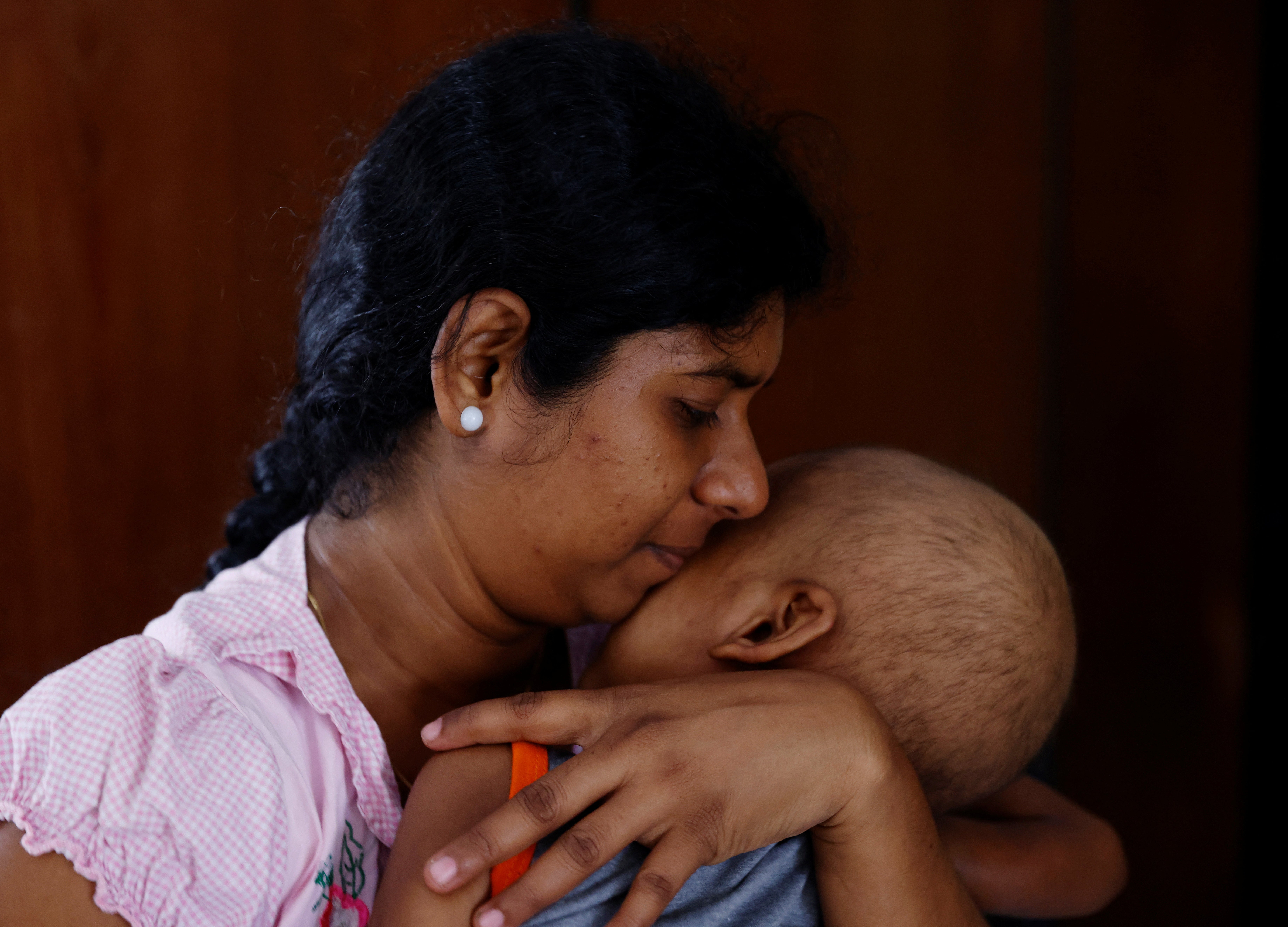
Priyantha Kumarasinghe starts his day in the small Sri Lankan town of Maharagama with a breakfast of two biscuits and a small glass of tea, followed by a round of cancer medicines.
The 32-year-old vegetable farmer was diagnosed with lung cancer in 2021 and started receiving treatment last year, just as Sri Lanka’s economy went into freefall.
Amid crippling fuel scarcity and weeks of unrest, Kumarasinghe says he was unable to travel the 96 miles between his home and Sri Lanka’s main cancer hospital on the outskirts of the country’s largest city, Colombo, for treatment.
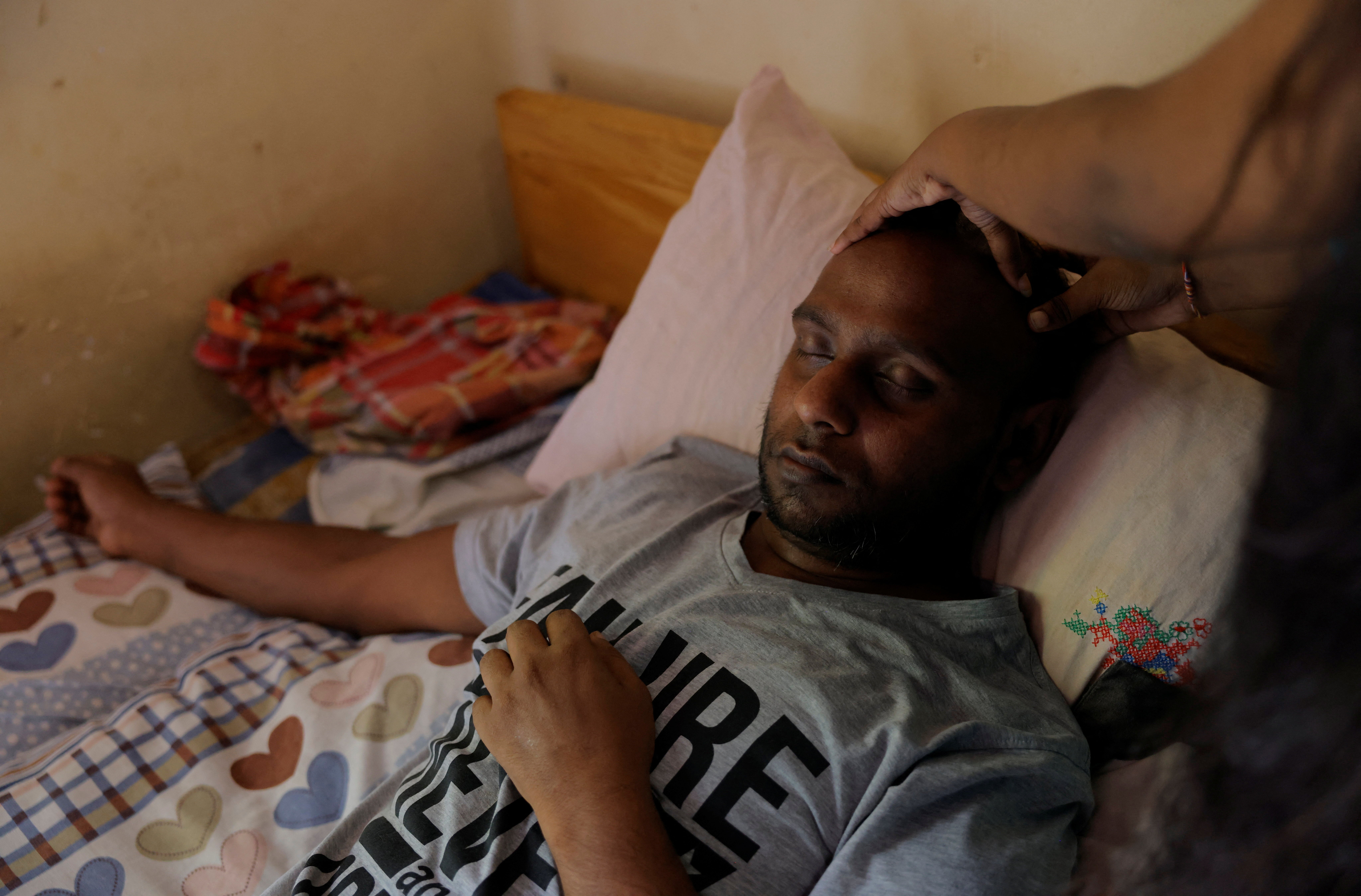
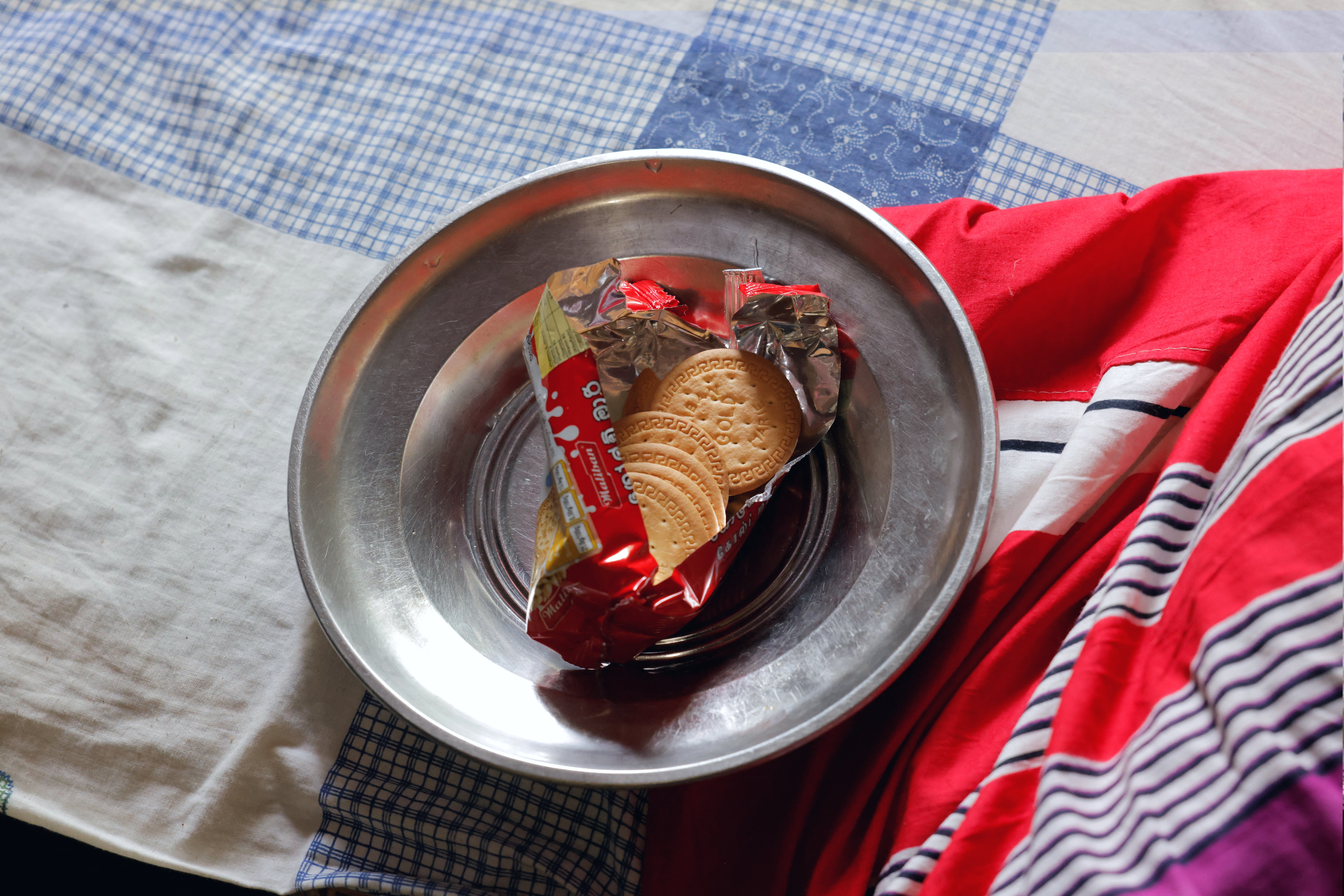
“If I had been able to get treatment properly during June, July and August, there is a good possibility I could have reduced the lung cancer,” he says. “Because that was not possible, that may be the reason why the cancer has grown.”
Kumarasinghe is among hundreds of cancer patients who have had their treatment upended by Sri Lanka’s worst economic crisis since the country gained independence from Britain in 1948.
Its hospitals have struggled to contend with severe drug shortages, which have worsened over the past year, a representative of Sri Lanka’s largest doctors’ union says.
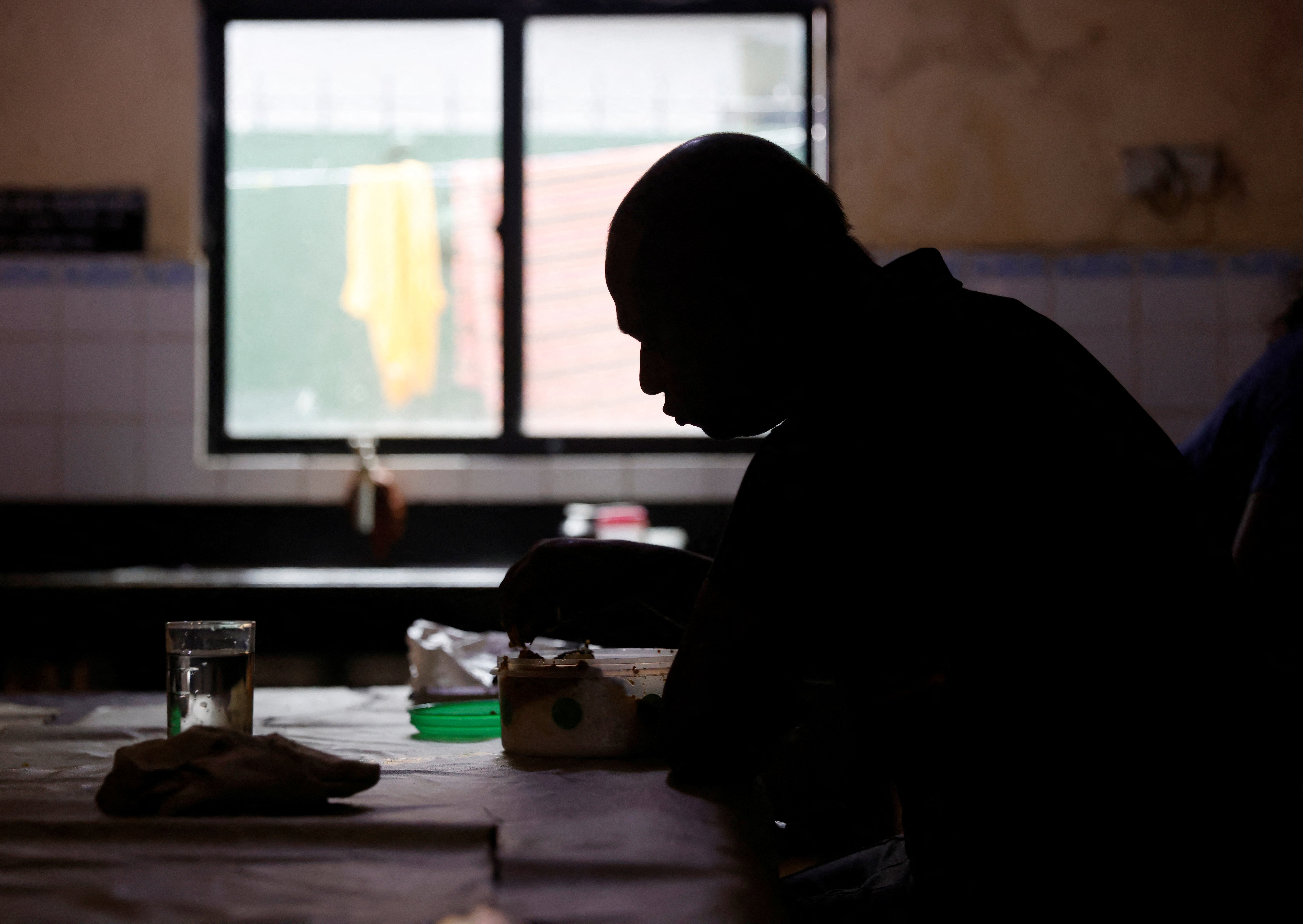
“All hospitals are experiencing shortages. There is difficulty in even sourcing basics like paracetamol, vitamin C and saline for outpatient services,” says Vasan Ratnasingam, a spokesperson for the Government Medical Officers’ Association.
Specialist facilities like cancer and eye hospitals are running on donations, Ratnasingam says. Sri Lanka’s health ministry and senior health officials did not respond to requests for comment.
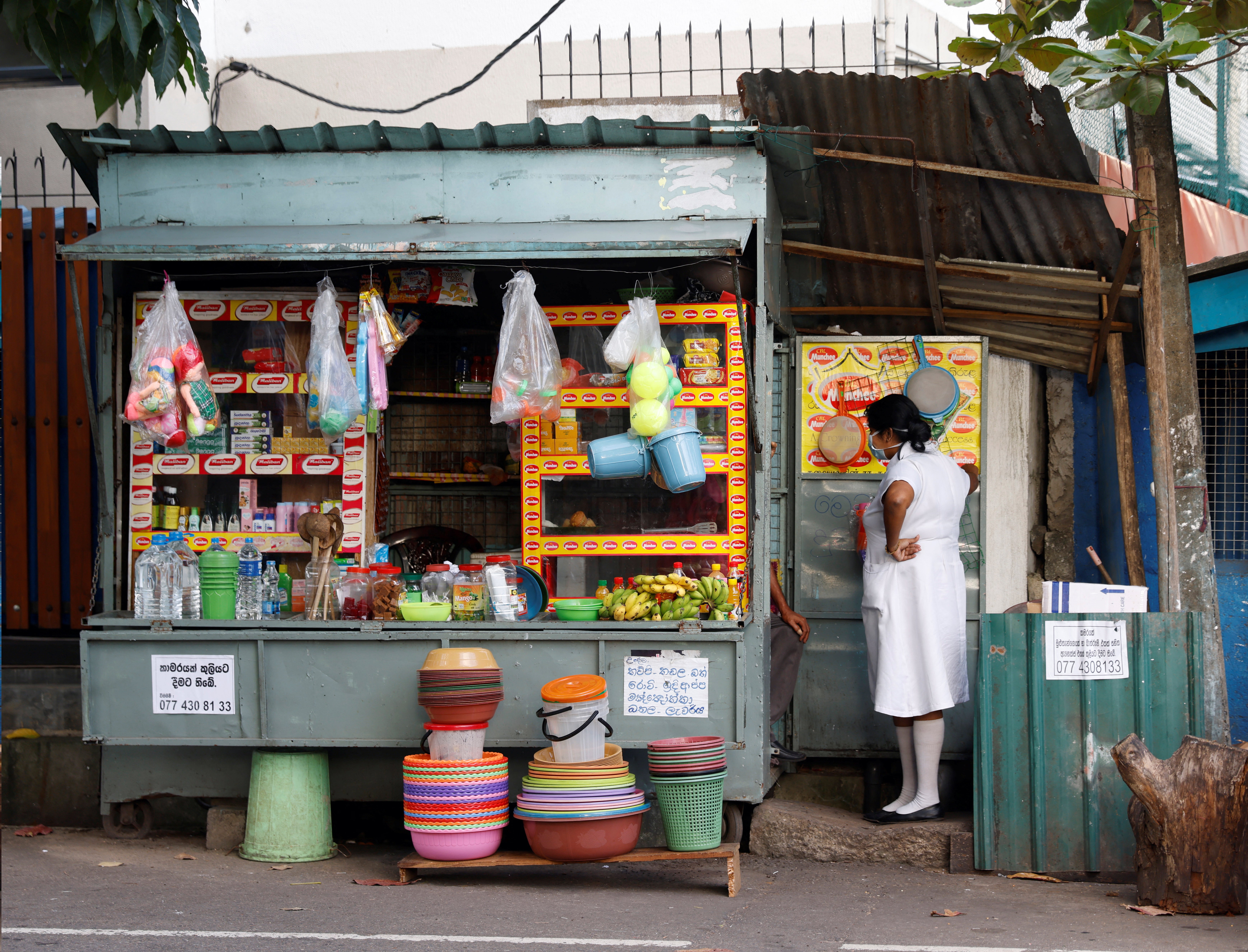
Battered by the loss of tourism and remittance earnings due to the pandemic, alongside an ill-timed tax cut, Sri Lanka slid into crisis in early 2022 after its foreign exchange reserves dried up, leaving it short of dollars to pay for fuel, food, cooking gas and medicines.
For months, the country of 22 million people was beset by hours-long power cuts and severe fuel shortages.
The economic hardship triggered protests, which in July ousted former president Gotabaya Rajapaksa after thousands took to the streets and occupied his official residence.
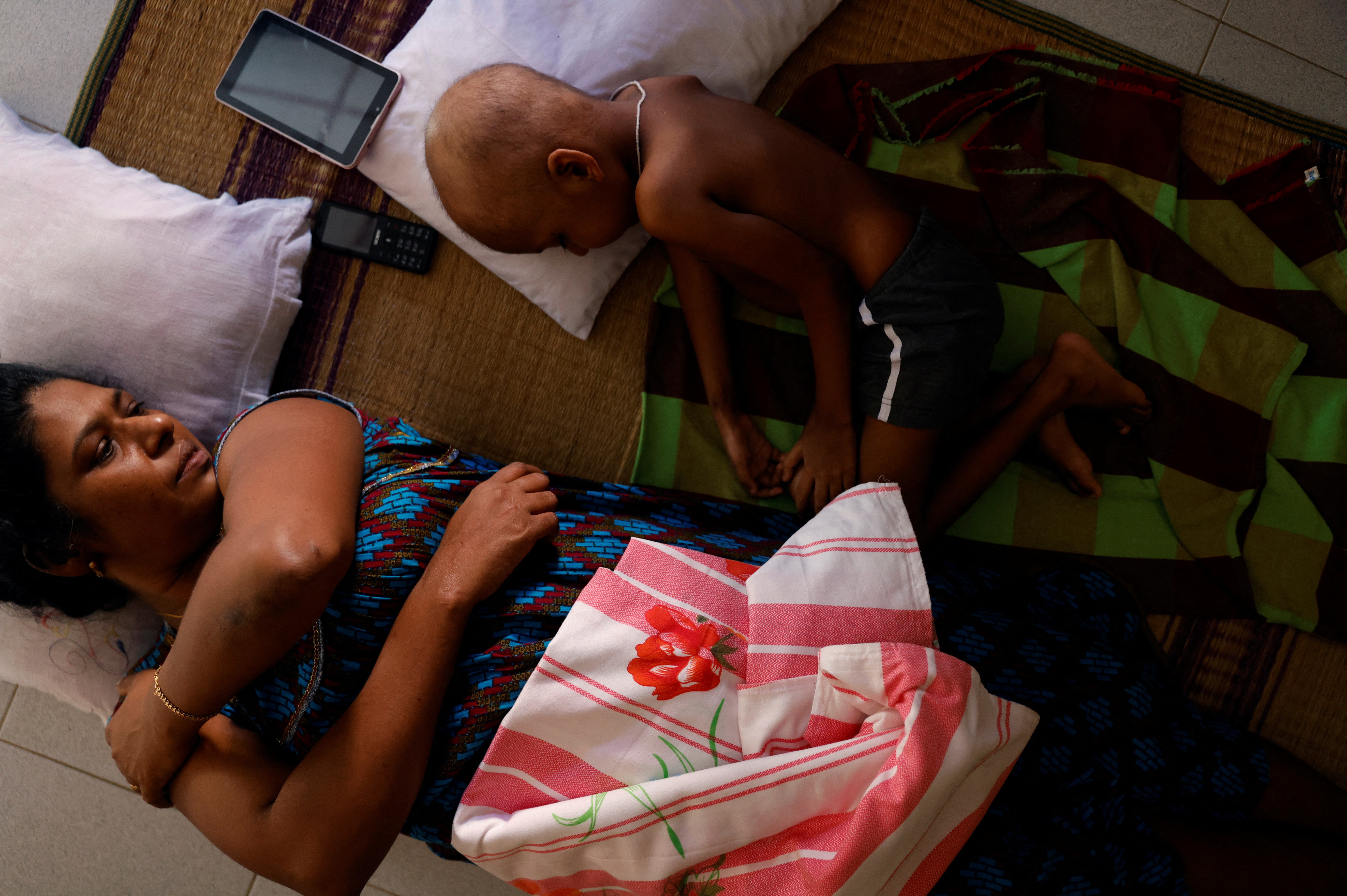
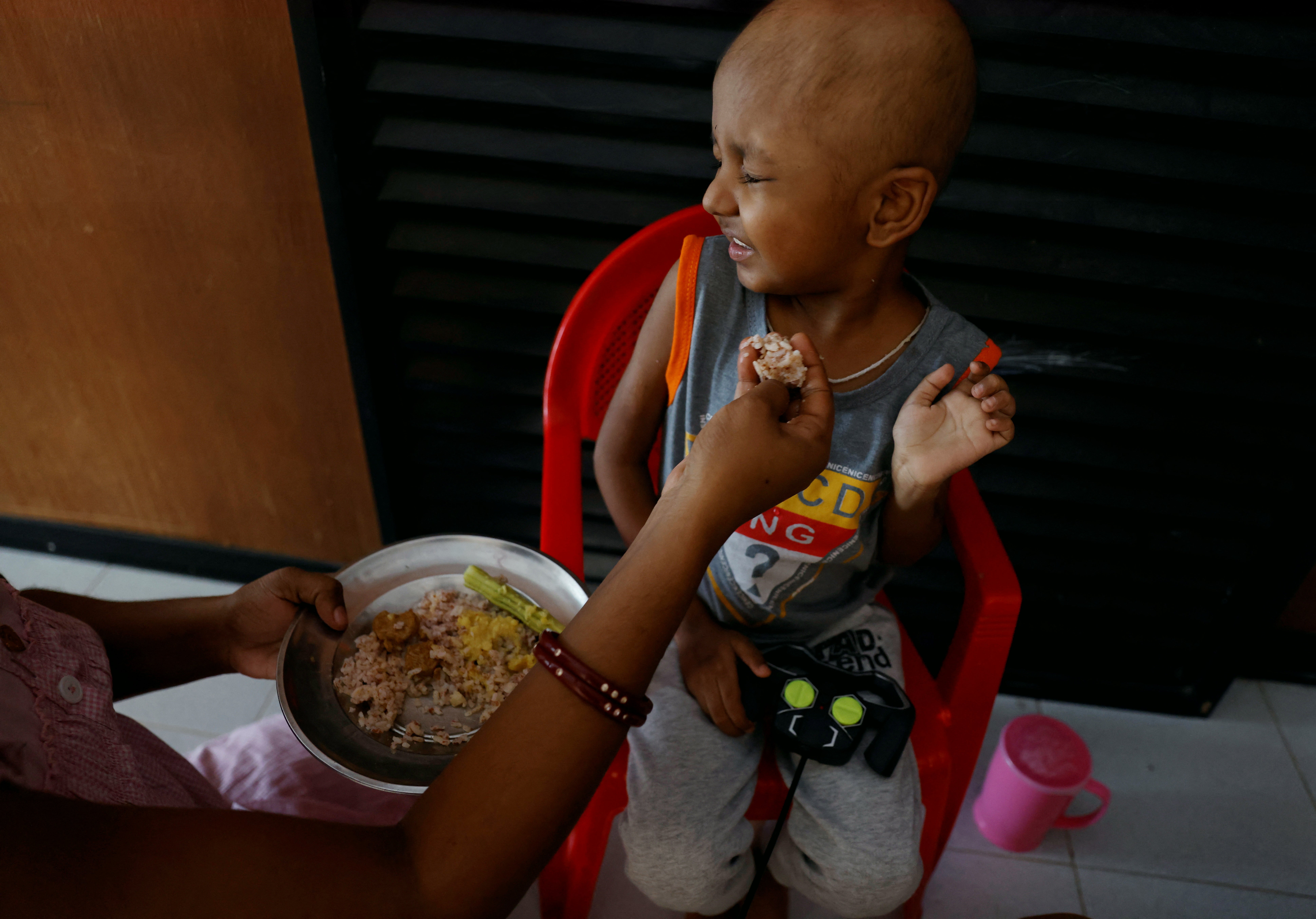
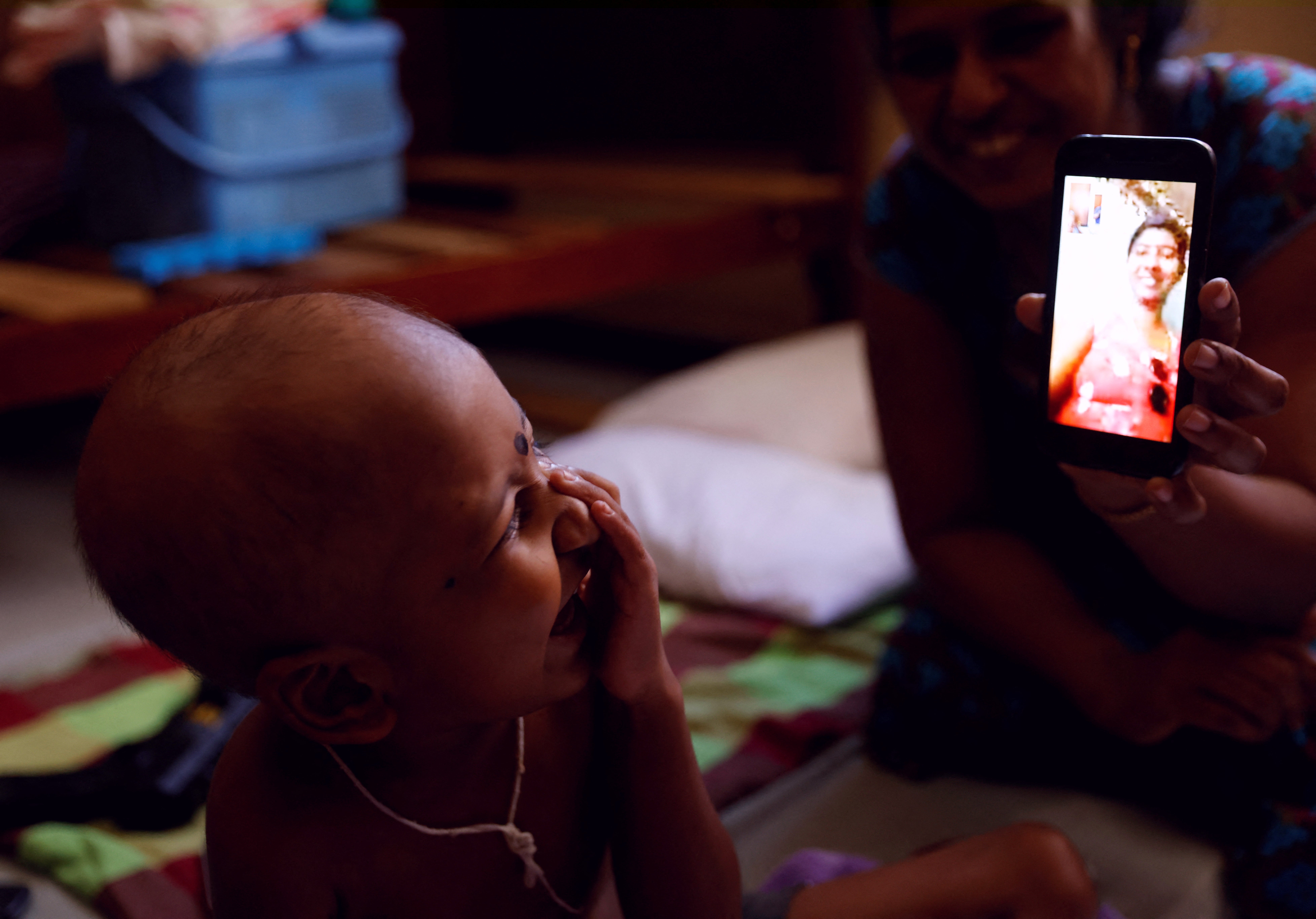
Currency depreciation and record inflation have combined to push middle-class families like Kumarasinghe’s to the brink as they scramble to meet higher living costs. But the family has another crisis to contend with.
Doctors are now worried that the cancer has spread to Kumarasinghe’s neck and spine, says his wife, Shashini Chamilka Maduhansi, 23.
The couple are awaiting results of an MRI scan that will direct future treatment, and have temporarily moved in with Kumarasinghe’s aunt, whose rented home is close to the hospital.
Their five-year-old son has been left in the care of other family members.
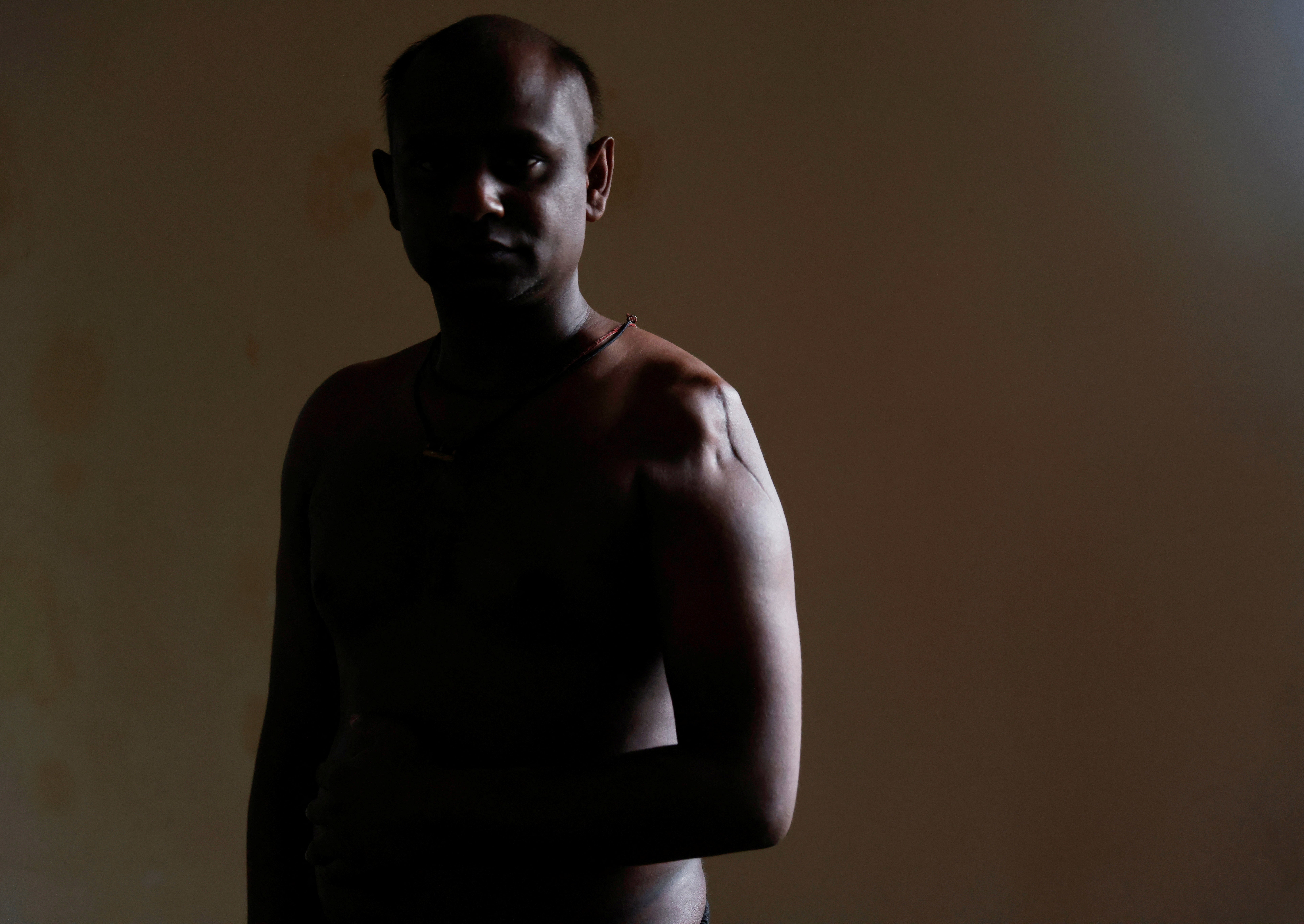
Kumarasinghe used to make a living growing leeks, carrots and cabbages, which are now being tended to by his parents.
Besides inflation, his income has been badly hit by a chemical fertiliser ban implemented a year ago, which has since been reversed but led to the price of fertilisers jumping to about 30,000 Sri Lankan rupee (£66.76) a bag from about 1,600 rupees previously, Kumarasinghe says.
“Every month I need about 70,000 rupees for expenses, but it is hard to meet the costs,” he says.
“Medicine is not available at the hospital, so it has to be brought from pharmacies. Every single type of medication is over 1000 rupees. I’m doing my best but it’s very hard.”
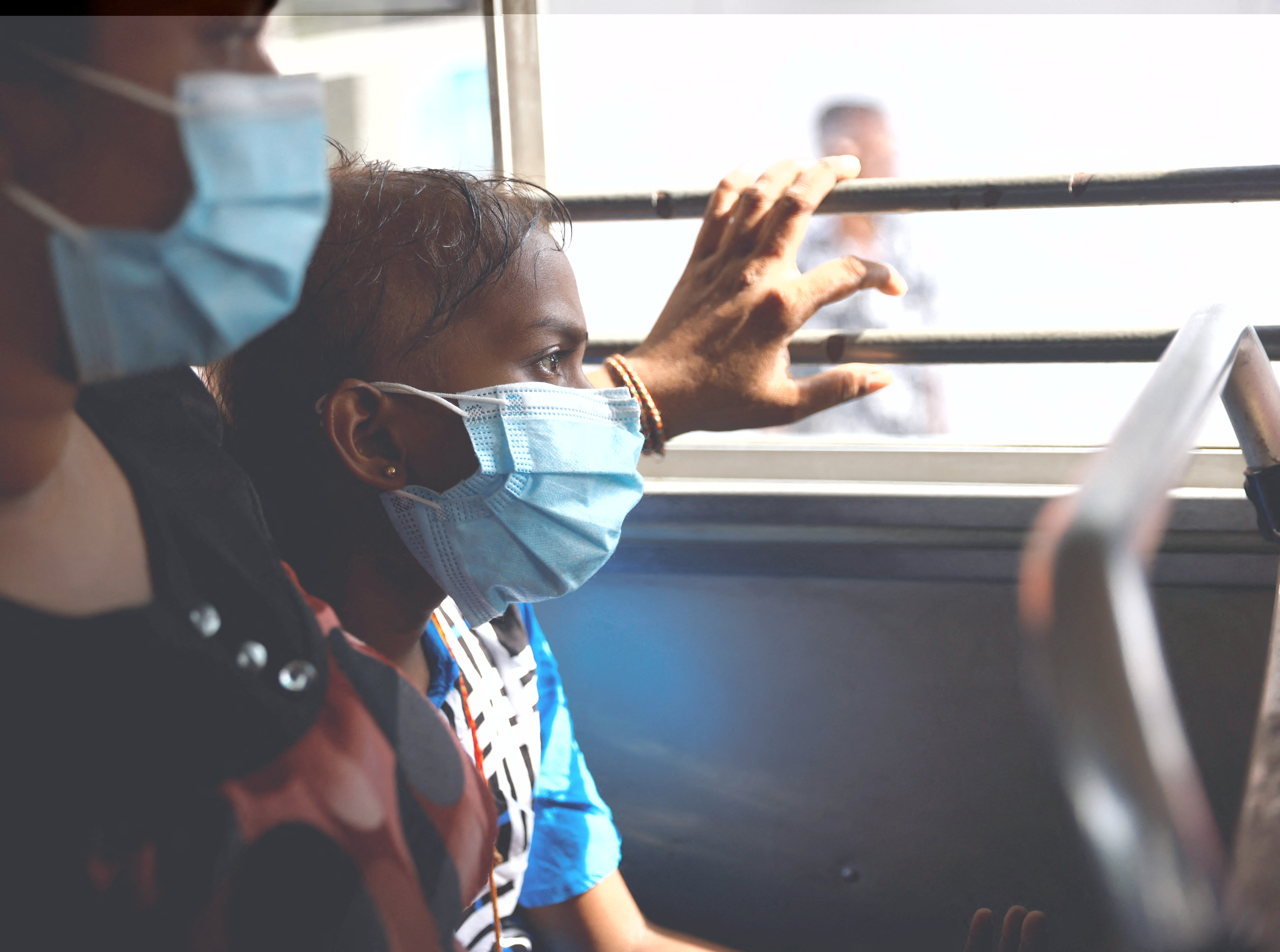
For decades Sri Lankans have benefited from a universal public healthcare system that subsidises treatment, including medicine for serious illnesses. But services have been hampered by the dollar shortage, which has restricted imports of medicines, and by the lack of public funds available to hospitals to provide care.
The country’s president, Ranil Wickremesinghe, has pledged to restore economic stability but has warned that the reforms will be painful, as the country strives to increase taxes in an effort to put its public finances in order. Sri Lanka is working with creditors including India, Japan and China to restructure debt.
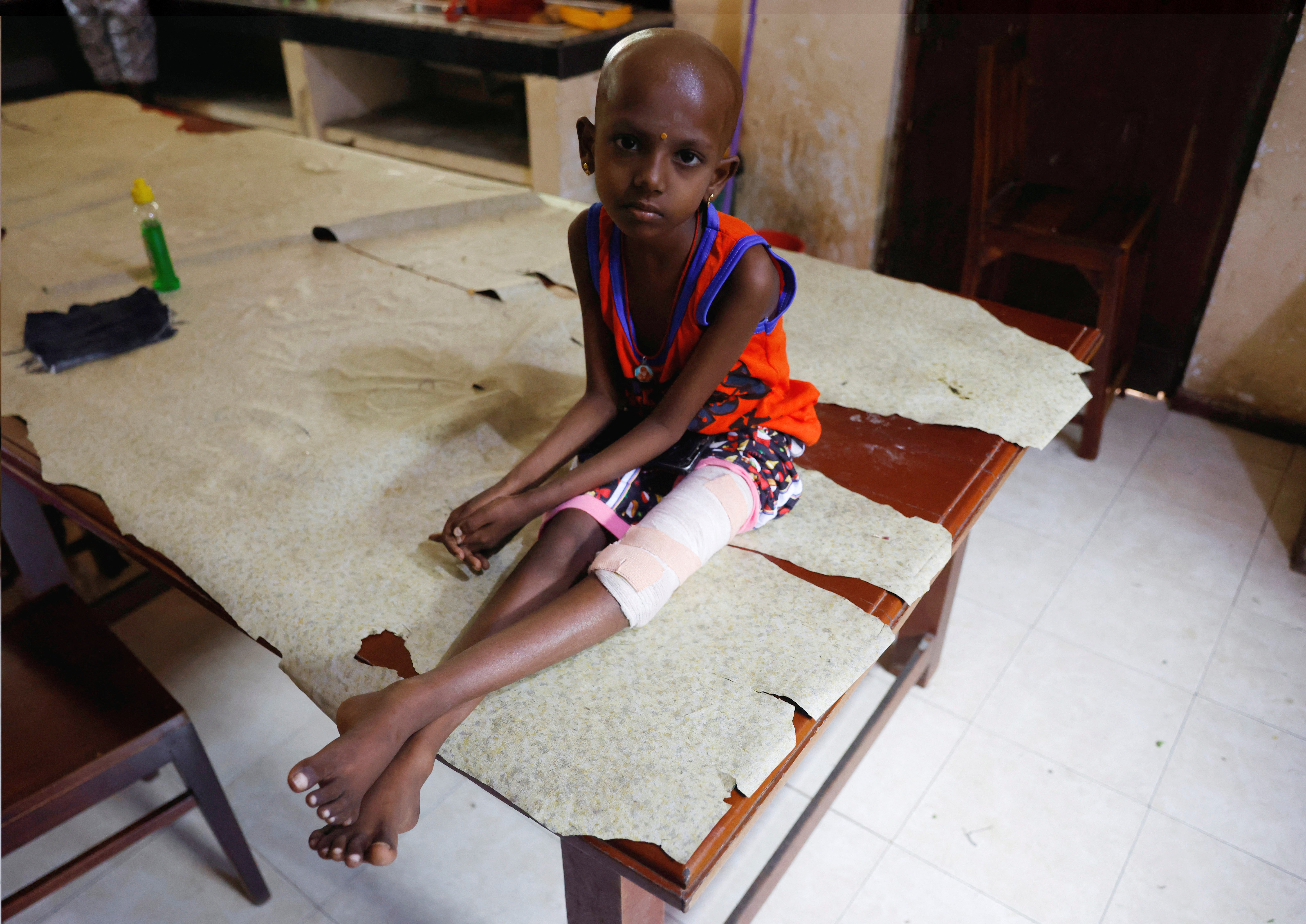
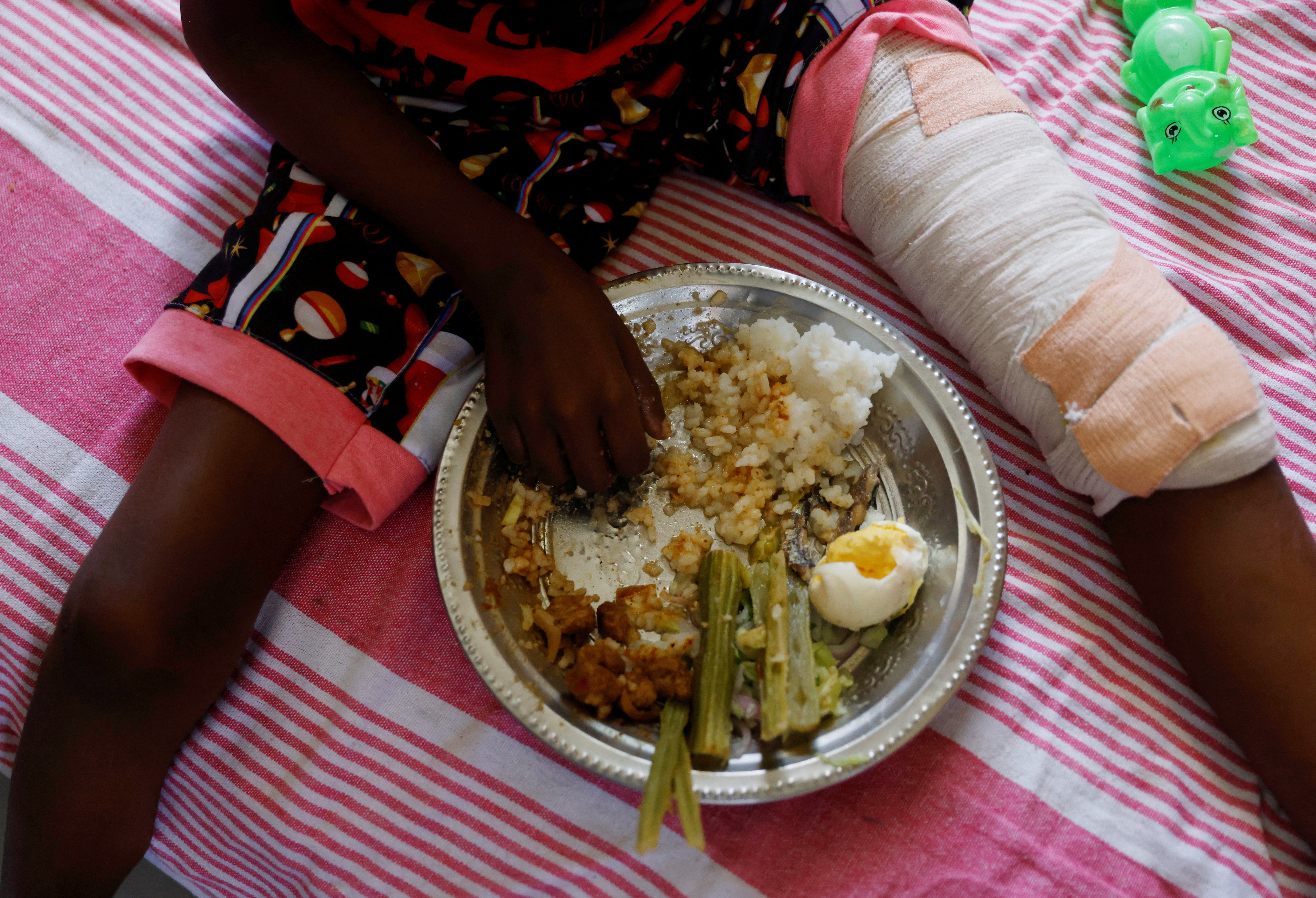
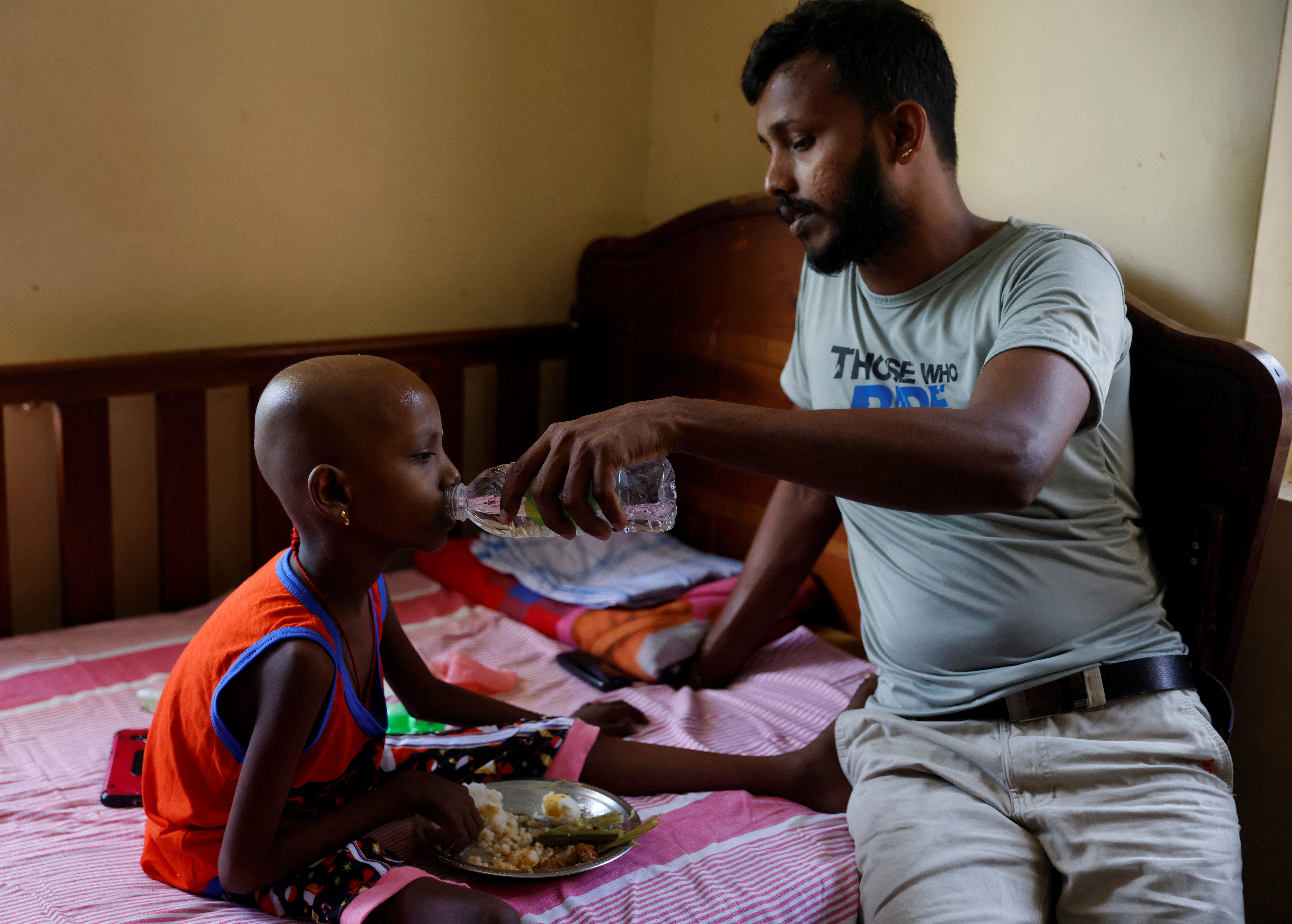
In September, the country entered a preliminary agreement with the International Monetary Fund for a $2.9bn (£2.4bn) bailout, but has to put its huge debt burden on a sustainable track before disbursement can begin.
The economic hardship remains crushing for many. Sathiyaraj Silaksana, 27, has come to visit her five-year-old son S Saksan, who is suffering from leukaemia. She has travelled 217 miles with her husband to feed him.
“Due to the current crisis in Sri Lanka, we are facing severe problems in transport and food,” says Silaksana, who is pregnant with her second child.
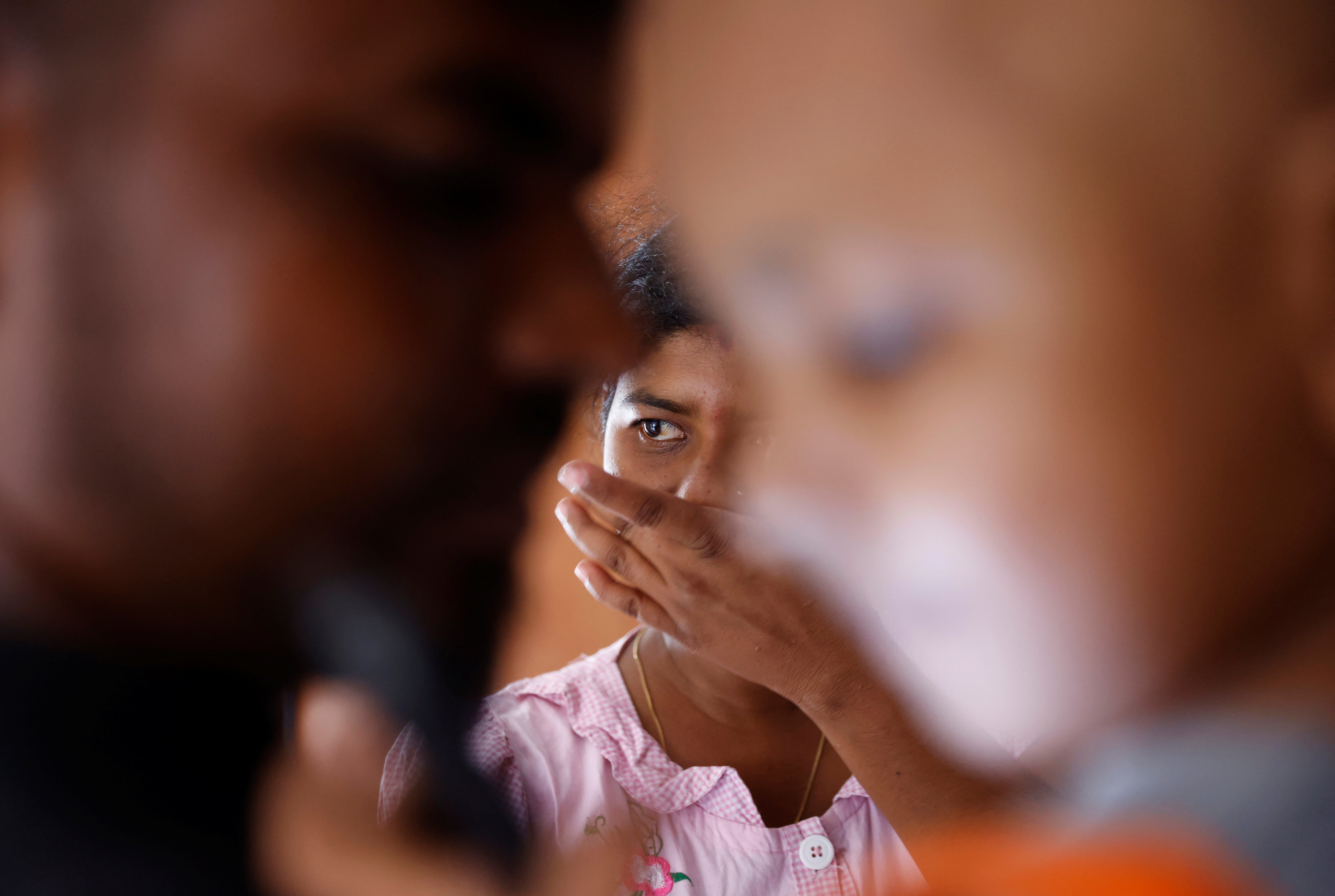
“I have no option but to pay for my son’s needs. My husband is a construction worker. In order to pay for all these expenses we pawned our jewellery.”
Photography by Kim Kyung-Hoon and Dinuka Liyanawatte
Reuters
Join our commenting forum
Join thought-provoking conversations, follow other Independent readers and see their replies
Comments